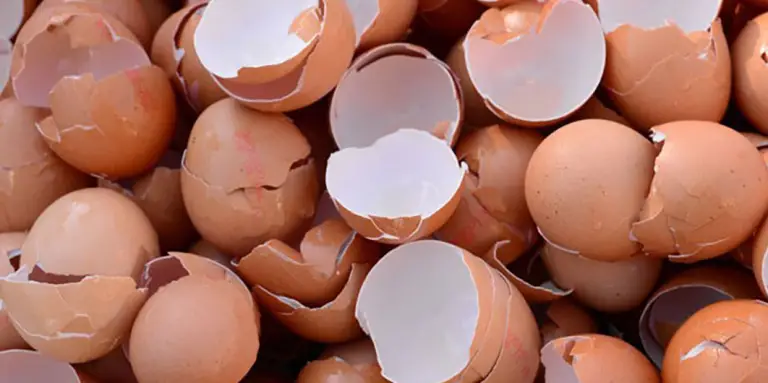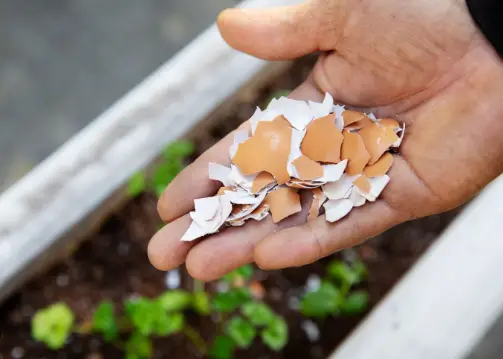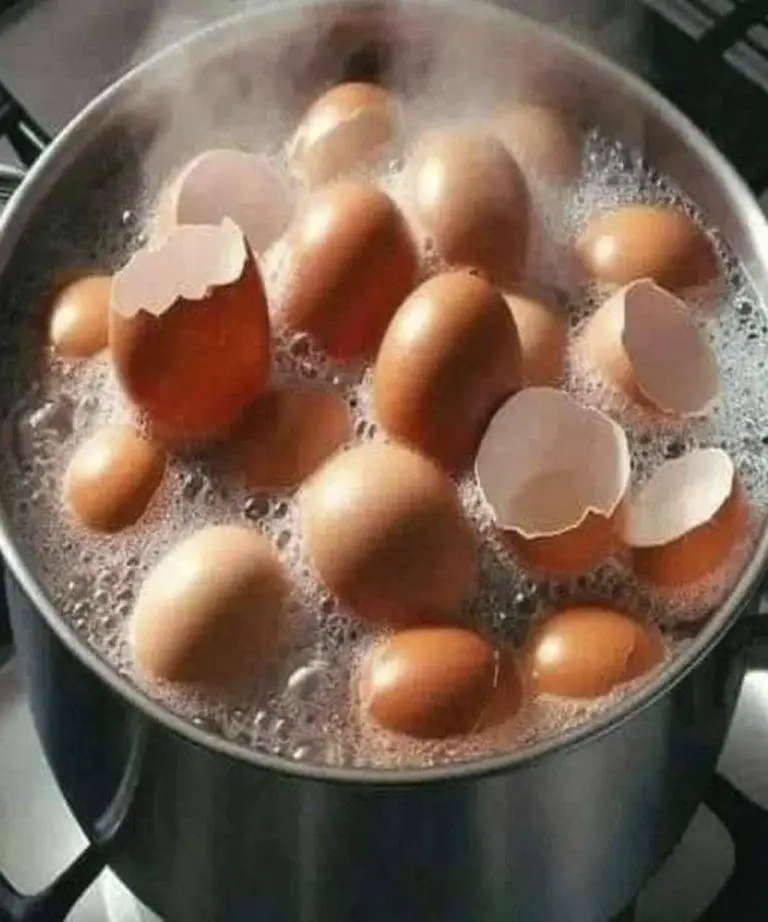Don’t Throw Them Away Anymore: How to Use Eggshells for Your Health and Your Plants
In many households, eggs are a daily staple. We crack them open for breakfast, use them in baking, or add them to salads and sauces. But what happens to the shells? More often than not, they go straight into the trash. What most people overlook is the hidden potential of these seemingly useless scraps. Eggshells are far more than just kitchen waste—they’re a valuable resource with remarkable benefits for both human health and plant care.
By learning how to properly clean, process, and use eggshells, you can reduce food waste, support your wellness, and improve your garden—all using something you already have on hand. This article explores the science and practice behind eggshell reuse, offering tips on how to make the most of this often discarded natural material.
The Science Behind the Shell: What Are Eggshells Made Of?
Eggshells are composed primarily of calcium carbonate (CaCO₃), a mineral that makes up about 90% of the shell’s structure. Calcium carbonate is also the main component of other natural formations like limestone and seashells. In addition to calcium, eggshells contain small amounts of magnesium, phosphorus, potassium, zinc, iron, and copper, all of which are trace minerals that play critical roles in both plant and human health.
The outer shell is covered in a thin cuticle, while the inner membrane contains beneficial compounds like collagen, glucosamine, and hyaluronic acid—all of which are gaining popularity in health supplements.
Rather than treating eggshells as waste, it’s time to recognize them for what they are: a natural, mineral-rich resource that can be used in multiple areas of life.

Health Benefits of Eggshells
When properly cleaned and processed, eggshells can serve as a natural calcium supplement that is safe and effective for human consumption. Here’s how:
1. Natural Source of Absorbable Calcium
Calcium is essential for maintaining strong bones, teeth, proper muscle function, and nerve signaling. Research indicates that calcium derived from eggshell powder is bioavailable, meaning the body can absorb and utilize it efficiently. In fact, some studies suggest that eggshell calcium is just as effective as commercial calcium carbonate supplements, and may even be superior due to its natural form and trace mineral content.
2. Supports Bone Health and Osteoporosis Prevention
Eggshell calcium may help improve bone density, particularly in postmenopausal women or those at risk of osteoporosis. Regular, moderate intake of eggshell powder has been shown to increase bone mineral density, reduce pain associated with calcium deficiency, and promote overall skeletal strength.
3. Additional Nutritional Benefits
Aside from calcium, crushed eggshells also contain:
- Magnesium, which helps regulate calcium absorption and supports muscle and nerve function.
- Phosphorus, which aids in bone formation and energy metabolism.
- Zinc and copper, which play roles in immune health and cellular repair.

How to Prepare Eggshells for Human Consumption
It’s crucial to sanitize eggshells properly before using them to avoid contamination from bacteria such as Salmonella. Here’s a safe, simple preparation method:
Step-by-Step Instructions:
- Rinse Thoroughly: After cracking your eggs, rinse the shells under running water to remove egg whites or yolk residue.
- Boil the Shells: Place the clean shells in a pot of boiling water for 5 to 10 minutes to kill any bacteria.
- Dry Completely: Lay the shells on a clean towel or baking sheet. Let them air dry for several hours or place them in an oven at 200°F (93°C) for 10–15 minutes.
- Grind into Powder: Once dry and brittle, crush the shells using a coffee grinder, mortar and pestle, or food processor until they reach a fine, sand-like powder.
- Store Safely: Keep the eggshell powder in an airtight glass jar or spice container in a cool, dry place.
How to Use:
- Add to smoothies or fruit juices (start with ½ teaspoon)
- Stir into yogurt, oatmeal, or soup
- Blend into baked goods or homemade pasta dough
Note: Adults should not consume more than 1 teaspoon per day to avoid excessive calcium intake. Always consult a healthcare provider before introducing any new supplement to your diet, especially if you have kidney issues or calcium metabolism disorders.
Garden Uses for Eggshells
Eggshells aren’t just useful for human nutrition—they’re also a powerful ally in gardening. Whether you’re cultivating a home vegetable patch or tending to a few pots on your balcony, incorporating crushed eggshells into your soil routine can yield surprising benefits.
1. Natural Fertilizer
Eggshells add valuable calcium to the soil, which is critical for plant cell wall development. This is especially beneficial for crops such as:
- Tomatoes
- Peppers
- Eggplant
- Zucchini
These plants are prone to calcium deficiency, which often results in blossom end rot, a common issue among gardeners.
How to Use:
- Rinse and dry the shells.
- Crush them into small pieces or grind them into powder.
- Mix them directly into the soil before planting, or sprinkle around the base of growing plants.
2. Soil pH Balancer
Calcium carbonate can help neutralize acidic soil, promoting a more favorable environment for a broader range of plants. This is particularly useful if you’re growing vegetables or herbs that prefer slightly alkaline conditions.
3. Pest Deterrent
The sharp edges of crushed eggshells can serve as a natural barrier against soft-bodied pests like slugs and snails. These pests dislike crawling over abrasive surfaces, making eggshells an effective and non-toxic repellent.
To use, scatter coarsely crushed shells in a circle around your plants. Reapply after heavy rains or watering.
4. Compost Booster
Adding eggshells to your compost bin enhances the nutrient content of your compost and helps balance the carbon-to-nitrogen ratio. The calcium and other minerals in eggshells enrich the final compost product, making it even more beneficial when applied to garden beds.
Composting Tip: Crush shells before adding them to the bin to speed up decomposition.
Other Practical Household Uses
In addition to garden and health applications, eggshells offer other functional uses around the home:
1. Homemade Cleaning Scrub
Mix finely crushed eggshells with baking soda and a bit of water to create an abrasive scrub for cleaning pots, pans, or stained surfaces without harsh chemicals.
2. Seed Starters
Use half eggshells as mini seed-starting pots. Simply poke a drainage hole at the bottom, fill with potting mix, and plant your seeds. Once seedlings sprout, plant the whole shell into the soil—the shell will decompose and feed the plant.
3. Drain Cleaner
Drop crushed shells into your sink strainer to trap solids and help clean your pipes as they break down. However, don’t overdo it, as too many shells can clog plumbing.
Sustainability and Eco-Conscious Living
Incorporating eggshell reuse into your routine is a simple yet impactful way to reduce household waste. Instead of sending organic matter to the landfill, you’re giving it a second life—as nourishment, as protection, and as enrichment for both body and soil.
By using eggshells wisely:
- You reduce food waste
- You minimize dependence on chemical fertilizers
- You avoid unnecessary supplement packaging
- You support closed-loop, sustainable living
Common Myths and Safety Notes
Myth: Eggshells Attract Pests
Truth: When properly cleaned and dried, eggshells do not attract pests. If you notice ants or rodents near your garden, it’s more likely due to other food sources.
Myth: Raw Eggshells Are Safe to Eat
Truth: Never consume raw eggshells. They may carry Salmonella or other bacteria. Boiling or baking is essential for safety.
Myth: Eggshells Decompose Instantly in Soil
Truth: Eggshells break down slowly. Grinding them into powder before use greatly speeds up the process and improves their bioavailability in both soil and the human digestive system.
Final Thoughts
What was once considered waste is now a nutritional powerhouse and a garden essential. Eggshells, when properly handled, offer an incredible range of benefits for both human wellness and plant vitality. From improving your calcium intake naturally to creating healthier soil for your backyard tomatoes, this often-overlooked kitchen byproduct is a symbol of sustainability in action.
So the next time you crack an egg, think twice before tossing the shell. You’re not just throwing away trash—you’re discarding a valuable, all-natural resource that can make a difference in your home and your health.

